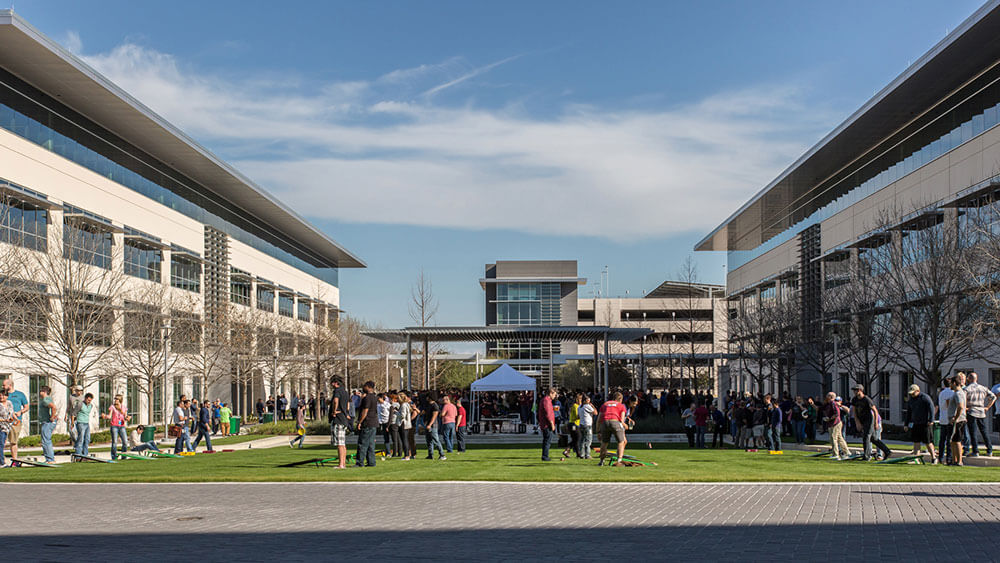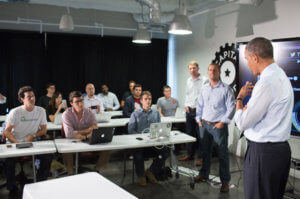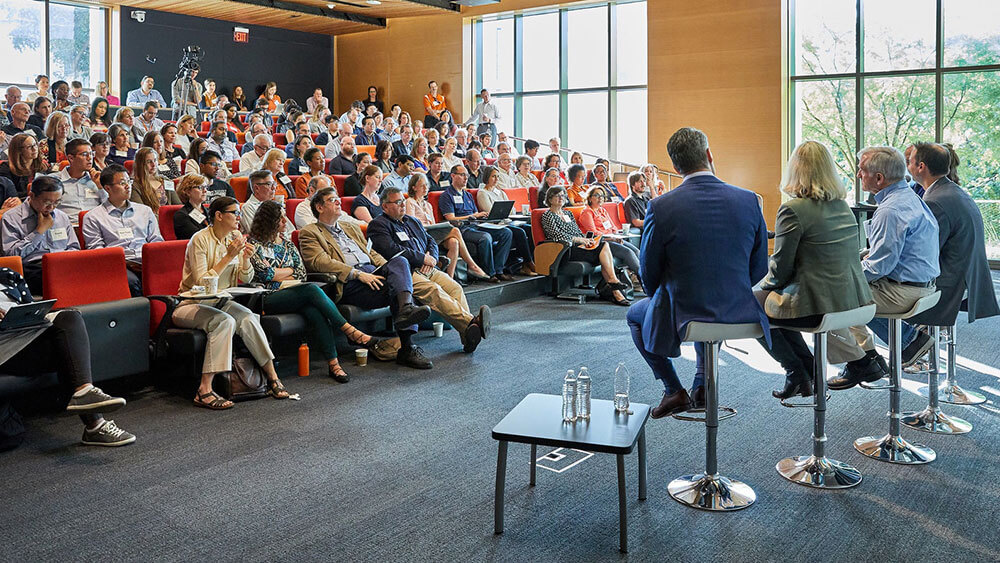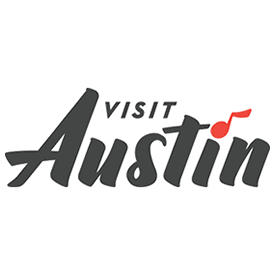
A $1 billion Apple campus in North Austin will bring with it 3 million square feet of space, 2 million of which will be dedicated office space for research and development. (Visit Austin)
Event planners looking for a unique meeting destination that can offer the technology resources of a city twice its size need look no further than Austin, Texas. Last year, the destination earned the No. 2 spot on Business.org’s Top 10 U.S. Cities for Entrepreneurs and Start-Ups in 2018 and was No. 6 on CBRE’s list of Top 10 Tech Talent Markets in North America, thanks to its quickly growing tech industry. What began in the 1950s with the establishment of the Austin Area Economic Development Foundation, which attracted companies manufacturing electrical and scientific equipment, has blossomed into a thriving innovation and technology scene, with more than 6,500 tech employers and 138,000 tech-related jobs in the city. Plus, with the upcoming addition of an Apple campus, organizers will have even more resources at their fingertips.
For medical meetings being held in Austin, there’s Dell Medical School, a great resource for planners looking to find world-renowned speakers and experts. The education center offers everything from youth programs to graduate courses, all while working alongside the community to address the socioeconomic, behavioral, and structural drivers of health and health care.
The Society of Interventional Radiology tapped into the talent at Dell Medical School earlier this year for its Annual Scientific Meeting, held March 23-28, at the Austin Convention Center. More than 5,000 professionals came out for the event to learn about the latest clinical research, experience new techniques and technologies, and discuss social, political, and economic issues affecting the interventional radiologist community.
Groups visiting Austin also can utilize tech-focused venues like Capital Factory, a startup accelerator and coworking space launched in 2009 that aims to bring technology and community together. The venue provides 81,000-square-feet of meeting space, including several classrooms, conference rooms, private offices, a game room with pingpong and virtual reality, and a 150-seat event space with a stage. Capital Factory is a great place for roundtables, meetups, cocktail parties, and other private events. The startup hub can also connect visiting groups to local like-minded entrepreneurs and organizations for creative partnership opportunities.

The tech-focused Capital Factory provides 81,000-square-feet of meeting space, including classrooms, conference rooms, private offices, and a 150-seat event space with a stage. (Courtesy Capital Factory)
Also instrumental in helping Austin establish itself as an innovation hub is the University of Texas’ IC² Institute. Founded in 1977, this research and tech center is a place where experts from the university, the government, and private sector can collaborate on new ideas that catalyze economic development. Since its inception, the institute has researched entrepreneurial wealth creation, and not only helped Austin grow as an innovation and tech destination, but it has helped establish knowledge-based economies in more than 40 countries.
Coming to the city in 2021, the $1 billion Apple campus in North Austin will bring with it 3 million square feet of space, 2 million of which will be dedicated office space for research and development, with the additional 1 million being used for ancillary space. Less than a mile from the existing Apple facilities, the new 113-acre campus will include 50 acres of preserved open spaces and be powered by 100 percent renewable energy.
“Apple and Austin share a creative spark and a commitment to getting big things done,” said Austin Mayor Steve Adler. “We share their commitment to diversity and inclusion. We’re excited they are bringing more middle-skilled jobs to the area. And we’re particularly gratified by their commitment to providing a great place to work for a large and growing number of America’s veterans.”
But despite this rapid growth, Austin doesn’t want to lose what makes it “weird.” The city’s flourishing tech industry has only helped spur other cultural sectors of the destination, from art and music to politics and journalism. “We don’t want to become Silicon Valley — we want to be Austin,” Joshua Baer, the founder and chief executive of Capital Factory, told The New York Times. “What makes Austin really different, to me, is the culture clash. But it’s not a clash. It’s the culture collaboration.”
For more information on meeting in Austin, check out the Visit Austin website, or you can sign up for Visit Austin’s meetings newsletter.

Planners of medical meetings can look to the Dell Medical School. (Visit Austin)

